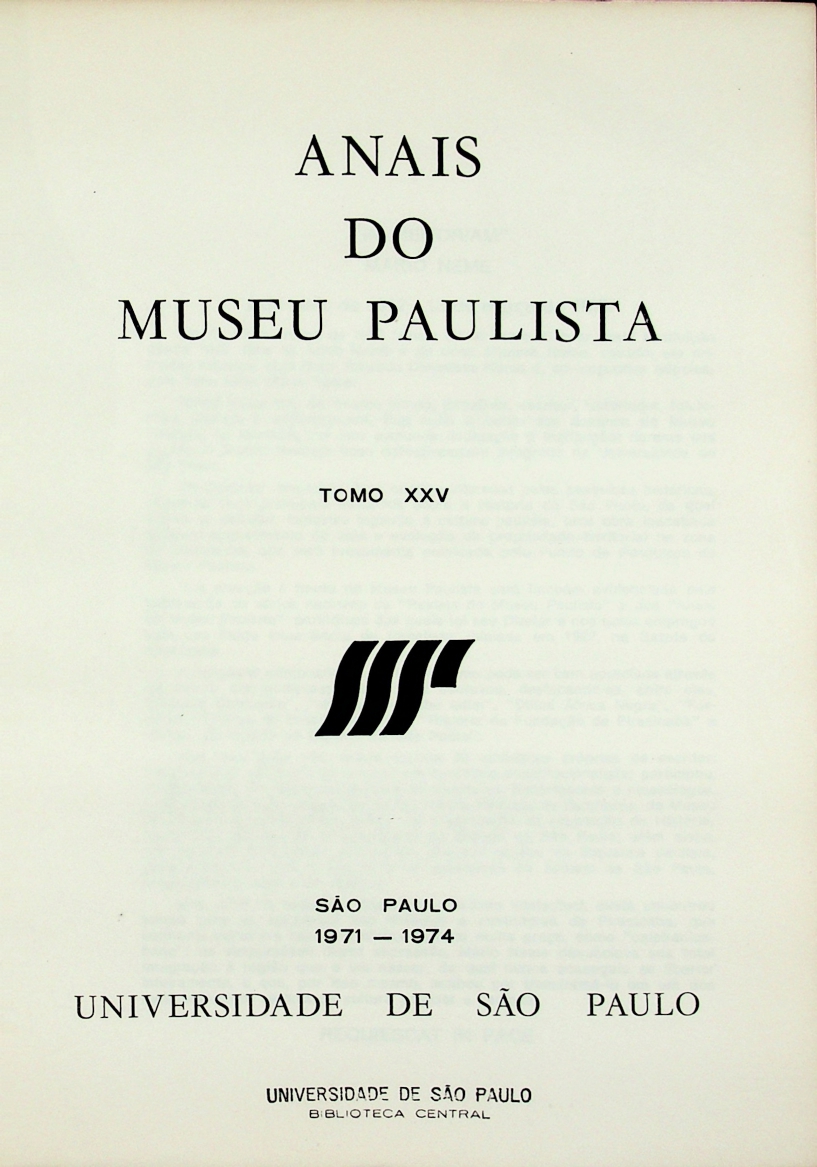O Engenho Central de Porto Feliz: (subsídios para o estudo dos Engenhos Centrais do Brasil no século XIX)
DOI:
https://doi.org/10.11606/1982-02671974TomoXXVe2Resumo
The main purpose of this article is to present basic facts for this study of the Engenhos Centrais no Brasil (Central Sugar Cane mills in Brazil), in this second half of XIX century. In 1875 a general law n.° 2.687, was published which, was meant to promote and develope this sugar cane industry in Brazil, and in its 2rd iten it was mentioned that the governement had authority to provide funds to ali companies which built central sugar cane mills, giving them the most advanced machineries and fabrication methods. Having received the benefits given by this law in 1878 a sugar cane mill was inaugurated, the Companhia Açucareira de Porto Feliz,the second of Brazil and the first one in the Province of São Paulo. Its modern machinary was bought from the Brissoneau Frères & Cia., a french house in Nantes and installed by André Paturau, who in 1876 was allowed by the Imperial Governement to use modern processes of his own invention and to produce sugar cane. This enterprise, however and many others in the same region failed because the country was concentrating on coffee plantation and at same time the international market was overcuowded with beet sugar produced in the Caribbean and there was no need of brasilian sugar. The Companhia Açucareira de Porto Feliz had to face several problems and financial difficueties which finally did put an end to its activities. The Engenho Central was bought by a Company in Rio de Janeiro named Companhia Engenho Central Paulista and later, bought by a French Company the Societé Sucrérie Brésiliennes, which owned already five other sugar mil's in Brazil: Piracicaba, Lorena e Vila Raffard in São Paulo and the mills of Cupim and Paraiso, in Campos in the State of Rio de Janeiro.
Downloads
Downloads
Publicado
Edição
Seção
Licença
Copyright (c) 1974 Jonas Soares de Souza

Este trabalho está licenciado sob uma licença Creative Commons Attribution 4.0 International License.
Autores que publicam nesta revista concordam com os seguintes termos:
- Autores mantém os direitos autorais e concedem à revista o direito de primeira publicação, com o trabalho simultaneamente licenciado sob a Licença Creative Commons Attribution que permite o compartilhamento do trabalho com reconhecimento da autoria e publicação inicial nesta revista.
- Autores têm autorização para assumir contratos adicionais separadamente, para distribuição não-exclusiva da versão do trabalho publicada nesta revista (ex.: publicar em repositório institucional ou como capítulo de livro), com reconhecimento de autoria e publicação inicial nesta revista.
- Autores têm permissão e são estimulados a publicar e distribuir seu trabalho online (ex.: em repositórios institucionais ou na sua página pessoal) a qualquer ponto antes ou durante o processo editorial, já que isso pode gerar alterações produtivas, bem como aumentar o impacto e a citação do trabalho publicado (Veja O Efeito do Acesso Livre).



